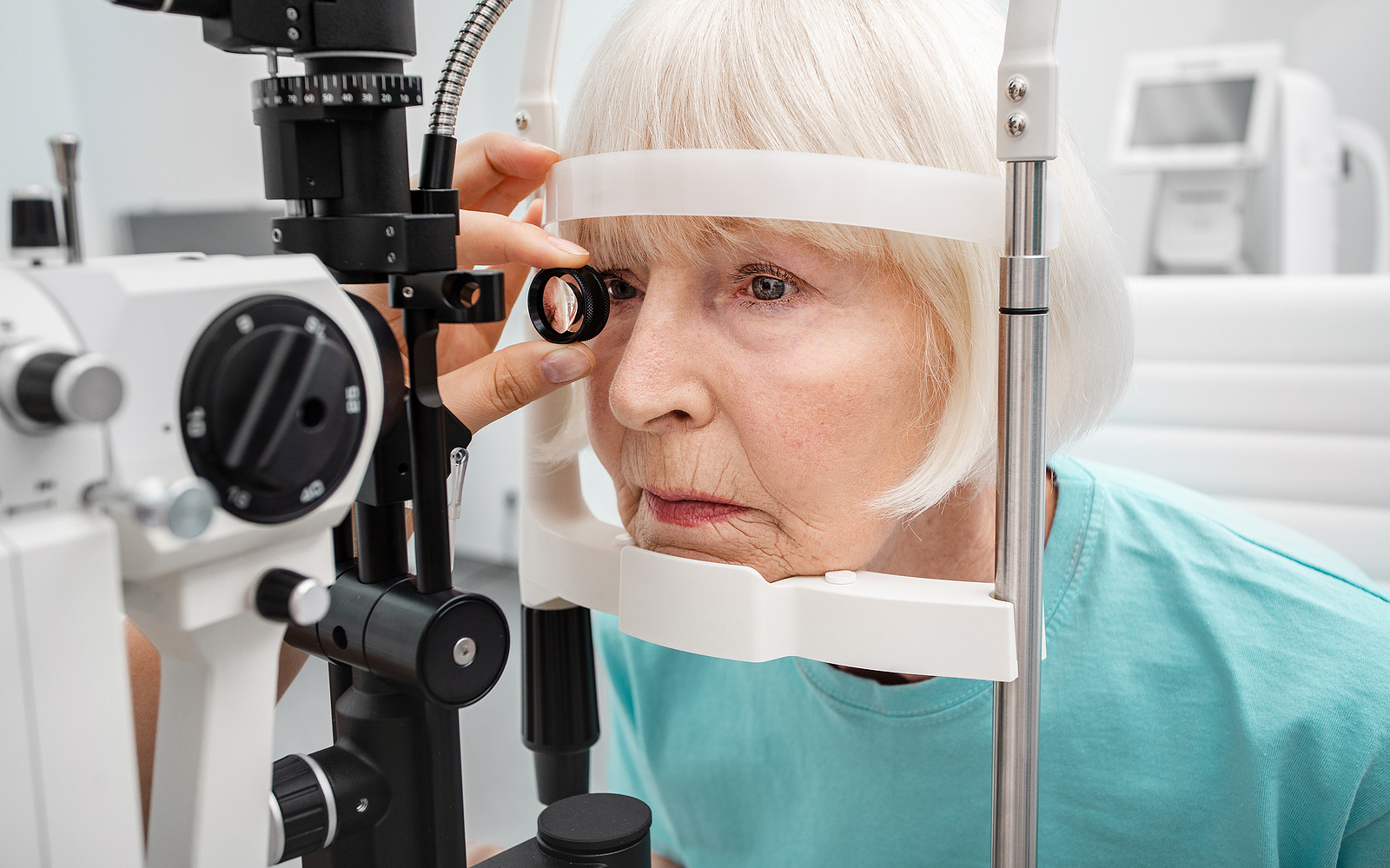What Happens to Your Eyes When You Get a Cold?

When you have a cold, it can also affect your eyes. Here’s how to spot the signs of an “eye cold” — and how to treat the condition.
With the cold and flu season now upon us, you’ll want to protect yourself from the telltale signs of a cold: nasal congestion, sore throat, sneezing, and coughing. As if those symptoms weren’t bothersome enough, a cold can also infect your eyes, leading to watery discharge and irritation.
Often, conjunctivitis, or “pink eye,” comes along with a cold. Conjunctivitis is marked by a reddish tint in the whites of the eyes, swollen eyelids, and sensitivity to light. It can be traced to a few different causes, including a virus, bacterial infection, or allergic reaction. However, if you have a cold, the most likely cause of pink eye is a virus.
Any of the following symptoms may indicate you have an “eye cold.” Here’s how to treat the condition.
What’s An Eye Cold?
An eye cold flares up from a viral infection that starts in the head or chest. It spreads when you rub your nose and then touch your eyes with your hands. If you have a cold, follow these three tips to prevent the virus from reaching your eyes:
- Wash Your Hands Frequently: Since your hands likely harbor the virus, keeping them clean helps prevent the infection from migrating to the eyes. In addition, regularly wash any towels or pillow cases to avoid spreading the virus.
- Don’t Rub Your Eyes: Rubbing your eyes only increases the chance of the virus infecting one or both eyes. It can also irritate already inflamed eyes.
- Care for Your Contacts: If you wear contact lenses, talk to your doctor about whether you should continue to use them while you have a cold. You may need to discard your disposable lenses and instead wear glasses. Hard contact lenses must be thoroughly disinfected, and it’s recommended that you clean your contact lens case, as well. If you reuse an infected lens, you may reinfect the eye.
Viral (and bacterial) infections can be very contagious. Children with pink eye should stay home until the infection passes. It’s up to you and your employer whether you should work while you’re suffering from a cold. If you decide to go into the workplace with a cold, make sure to practice good hygiene, keep your hands clean, and avoid direct contact with co-workers.
Caring For an Eye Cold
Unfortunately, there is no cure for the common cold. However, your doctor can diagnose pink eye with a physical exam and recommend ways to minimize the symptoms. In rare instances, you doctor may analyze a sample of the discharge to rule out other conditions, such as a severe bacterial infection.
Since a cold usually diminishes in a week, treatment centers on easing your symptoms while the infection is at its height. Methods to reduce discomfort include:
- Apply a Compress: Try pressing a clean cloth dipped in either warm or cool water to your closed eye. You can apply a compress to both eyes if both are infected, but avoid putting the compress on the healthy eye if only one is infected.
- Use Eyedrops: Eye colds often dry out the eye because, in some cases, not enough mucus is being produced. To relieve dry and irritated eyes, you can try an over-the-counter artificial tear medication.
- Reduce Screen Time: An eye cold can make your eyes extra sensitive to light and vulnerable to eye strain. One way to protect your eyes from strain is to cut down on the amount of time you spend in front of computer screens and smartphones. Smartphones may be especially harmful because of the small type size.
If you’re experiencing vision problems, whether from a cold or another condition, the team of specialists at Swagel Wootton Eye Institute can help by using state-of-the-art equipment to diagnose the ailment. We’ll then recommend the best course of action to improve your eye health. Contact us today for an appointment at our Mesa and Chandler location.
[DISPLAY_ULTIMATE_SOCIAL_ICONS]








